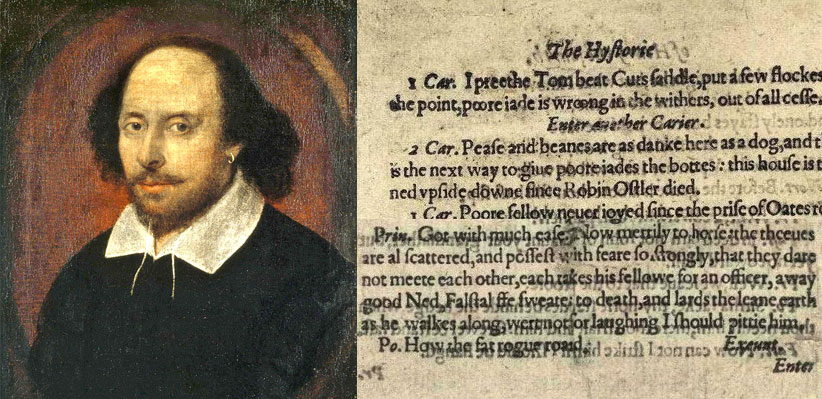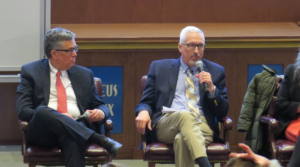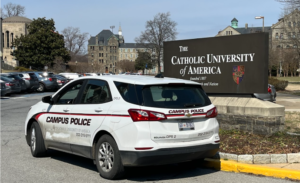The Shakespeare and 2020 Pandemic Series: Religious & Political Dissent (Part 2)

Image Courtesy of Puget Sound Blogs
By Anna Harvey
The era of Shakespeare and our time during 2020 are not that dissimilar. Both time periods have been characterized by plague and disease, religious tumult, and political dissent.
Similar to 2020, Professors Lawrence Poos and Daniel Gibbons discuss the political and religious conflicts that dominated Shakespeare’s time. Reflecting on religious tumult during Shakespeare’s time period, Gibbons observed that while the tensions between religions were very heated, these tensions rarely boiled over.
“Queen Elizabeth I had suppressed Catholicism and established her preferred theo-political ‘settlement’ by the time Shakespeare was born,” Gibbons said. “She maintained the peace with a mix of intelligent strategy, public brutality, and religious piety that rivals the best and worst of our best and worst leaders. Whatever we may think of her policies, her reign was remarkably long and her government was remarkably effective at achieving its goals.”
Poos identified more tumultuous behavior, however, under the surface of Queen Elizabeth’s seemingly-effective reign.
“Our whole understanding of the English Reformations has been upended in the last 20-30 years, and it now seems much clearer than it did not long ago that the tensions and pushback by ordinary people against the new Church of England and its enforced attendance were much stronger and lasted much longer than historians used to think,” Poos said. “The state started more repressive measures – identifying and fining people who didn’t participate in the Protestant liturgy for instance – this began to intensify in the 1570s and 1580s.”
Political commotion in England, furthermore, seemed to be more removed from Shakespeare’s lifetime. As Gibbons notes, political uprisings tended to focus around Ireland, and other than an attempt by the Spanish Armada to invade England in 1588, the isle was relatively free from outside invaders. Gibbons also noted that the infamous Gunpowder Plot arose during the reign of King James, but like prior uprisings, it was averted.
“There was an incident in 1601 called Essex’s Rebellion, in which the Earl of Essex tried to dethrone Elizabeth, claiming that her government was plotting to make England subject to Catholic Spain,” Gibbons said. “On the eve of the rebellion, the Lord Chamberlain’s men were paid handsomely to revive Shakespeare’s play Richard II, probably because of its depiction of the deposition of a sitting King, but Shakespeare himself was not involved in the rebellion itself as far as we know. At any rate, the rebellion failed and Essex was beheaded, but none of the Lord Chamberlain’s Men were charged with any crimes.”
Within his writings, Shakespeare aimed to avoid religious and political conflicts, so as to protect his own career amidst Queen Elizabeth’s reign.
“We might even say that the remarkable scarcity of religious and political controversy in Shakespeare’s plays was the primary result of all those conflicts,” Gibbons said. “Part of Elizabeth’s way of suppressing religio-political conflict in her time was to forbid treating “matters of religion” on stage. If he wanted his plays to provoke deeper reflection upon theological questions, he had to find indirect ways to do it.”
While Shakespeare remained fairly removed from these political and religious crises, however, they certainly had an impact on him and his writing.
“Perhaps we could say that the European wars of religion and the English upheavals experienced by Shakespeare’s father’s generation helped to create a war-weary environment in which Shakespeare could write of famous warrior-kings with the remarkable mixture of admiration and cynicism that we find in plays like Henry V and Macbeth,” Gibbons said.
This avoidance of talking about current religious conflict suggests an interesting perspective on his writings as well.
“Shakespeare’s wary indirectness about religion and politics is one of the most distinctive and fascinating aspects of his art,” said Gibbons.
Reflecting on the importance of studying Shakespeare and his era amidst 2020, Poos notes how modern society today can take comfort in the fact that our current struggles are not unique to history.
“One [thought] is, this really isn’t new. We’ve just forgotten, because modern medicine and science have lulled us into thinking deadly diseases are things of the past or only happen in brief isolated places and times, that measures like isolation and feeling that we don’t know when things will be normal again have been part of the human condition for a long time,” Poos said.
Through his writings, Shakespeare not only embodies his own beliefs as to how to approach times of distress, but he reflects a cultural attitude as well to avoid panicking over the contentious. Perhaps by studying Shakespeare’s writings during the tumultuous year of 2020, we can learn a similar resilience against our current struggles with political and pandemic panic and look to our own creativity as a means of bettering the environment around us.





